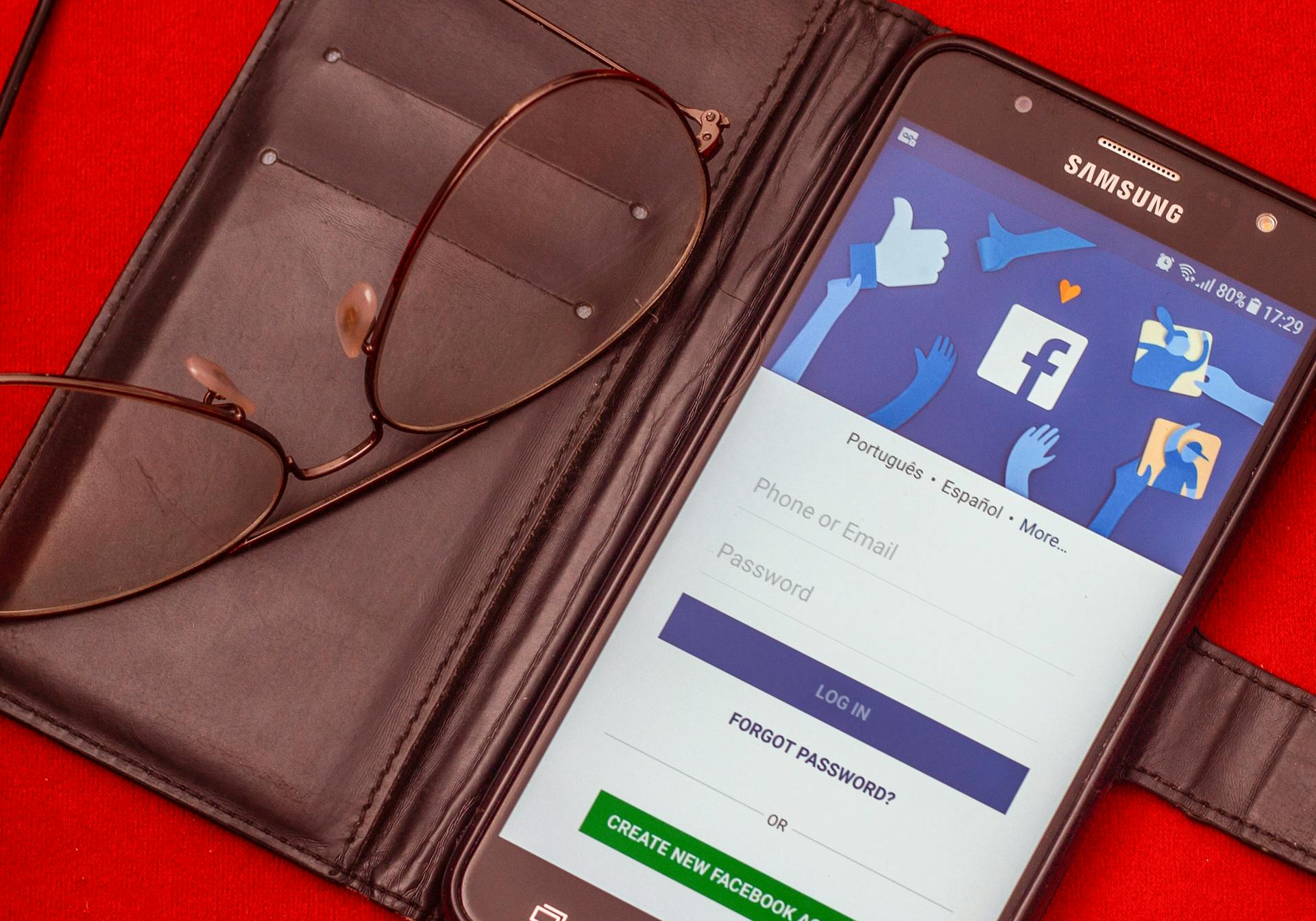
Ally Bank uses advanced encryption technology to protect your online banking information, including 128-bit SSL encryption and two-factor authentication.
This means that even if someone intercepts your online banking session, they won't be able to access your sensitive information.
Online Banking Safety
Online banking is generally very safe, but you can further protect yourself with these cybersecurity best practices: regularly monitor your accounts, check for the lock symbol or "https" in the page's address bar to ensure SSL encryption is active, and use multifactor authentication.
Online banks implement several common security measures, including SSL encryption, firewalls, anti-virus protection, and multifactor authentication. Ally Bank, for instance, guarantees that you will not be liable for any unauthorized online or mobile banking transaction as long as you report it to them within 60 days from when your statement is made available.
Most online banks are FDIC-member banks, which means your deposits are FDIC insured up to the maximum amount allowed by law.
A different take: Ally Bank Fdic
Avoid Public Wi-Fi for Online Banking
Public Wi-Fi networks are often unsecure, making it easier for hackers to intercept your data. Avoid accessing your bank accounts or conducting financial transactions over public Wi-Fi.
Ally Bank takes the security of your accounts seriously, but even the most secure banks can't protect you if you're using unsecured public Wi-Fi. Use a secure, private network or your mobile data connection instead.
Regularly monitoring your accounts is crucial to spotting any unauthorized activities, but it's also essential to avoid public Wi-Fi for online banking. This will help prevent hackers from intercepting your data in the first place.
Ally Bank guarantees that you won't be liable for any unauthorized online or mobile banking transaction as long as you report it to them within 60 days from when your statement is made available.
For another approach, see: Internet Banking and Mobile Banking
SSL Encryption
SSL Encryption is a crucial aspect of online banking safety. It secures your connection on a browser when logging in, applying, or registering for services.
To ensure SSL is active, look for the lock symbol in the page's address bar. If you see a lock, it means your connection is secure.
The presence of "https" in the page's address bar also indicates that SSL is active. This small detail can give you peace of mind when banking online.
Are Online Money Market Accounts Safe?
Online money market accounts can be a safe way to store your cash, especially if you choose a reputable bank like Ally Bank. Ally Bank is a FDIC-member bank, which means your deposits are insured up to the maximum amount allowed by law.
Ally Bank takes online banking security very seriously, with a layered strategy that protects customers from threats. This includes SSL encryption, firewalls, anti-virus protection, and multifactor authentication.
You can rest easy knowing that Ally Bank guarantees you will not be liable for any unauthorized online or mobile banking transaction as long as you report it to them within 60 days from when your statement is made available.
The executive director of enterprise fraud, security, and investigations at Ally Bank, Jeff Kearney, has a long background in fraud and security and leads the company's approach to fraud-fighting and prevention.
For your interest: Bank Security Officer
Account Security
Online banking is generally very safe, but you can further protect yourself — and your finances — with a few key practices.
Most online banks, including Ally Bank, implement security measures such as SSL encryption, firewalls, anti-virus protection, and multifactor authentication to protect your information.
You can sign up for fraud alerts with Ally Bank to receive notifications about suspicious activity, including large withdrawals, account closures, and login attempts. These alerts can give you a heads up if something's amiss.
Ally Bank guarantees that you won't be liable for unauthorized online or mobile banking transactions as long as you report them within 60 days.
A fresh viewpoint: Online Banking Alert
Biometric Authentication
Biometric authentication is a game-changer for account security. We've integrated fingerprint authentication into our mobile banking apps, making it easy to log in without a password.
This method is hard for criminals to replicate, giving you an extra layer of protection. Facial recognition and voice recognition are also effective biometric security measures.
These verification methods are designed to be user-friendly, so you can focus on managing your accounts without hassle.
Build Strong Passwords
Building strong passwords is a crucial step in protecting your financial information. Repeating passwords or keeping them simple is a bad idea, as it can compromise your security.
Create complex, unique passwords to provide another layer of protection for your funds. This will make it much harder for hackers to gain access to your accounts.
Always secure your device and applications with a complex key code. This will add an extra layer of security to your online banking and other financial activities.
Online banking is generally very safe, but using strong passwords can further protect you and your finances.
Related reading: Ally Financial Stock
Credential Confidentiality
We don't share your usernames and passwords, and we strongly recommend you don't share them either.
Your usernames and passwords should remain confidential to prevent unauthorized access to your accounts.
At Ally Bank, we guarantee that you will not be liable for any unauthorized Online or Mobile Banking transaction as long as you report the unauthorized transaction by calling us at 1-877-247-2559 within 60 days from when your statement is made available.
Banking Safety Features
Ally Bank has a layered strategy to protect its customers from threats, with a focus on keeping accounts and personal information secure.
The bank guarantees that customers will not be liable for any unauthorized online or mobile banking transaction as long as it's reported within 60 days from when the statement is made available.
A dedicated team, led by Jeff Kearney, works to create partnerships with teams across Ally and external vendors to stay vigilant and current on all fraud and security matters.
Jeff has a long background in fraud and security, previously holding the position of chief security officer at GMAC Insurance, bringing valuable expertise to Ally Bank's approach to security.
Ally Bank's approach to security involves partnerships with law enforcement to stay ahead of potential threats and protect customers' accounts.
Staying Safe
Online banking is generally very safe, but you can further protect yourself — and your finances — with these cybersecurity best practices.
Automatic logout is a feature that helps prevent others from seeing or using your online accounts. It logs you out of your secure session after a period of inactivity.
Limited liability is also a benefit, depending on the terms of the policy. This means that if you report unauthorized transactions on your account in a timely manner, the charges may not be your responsibility.
Automatic Logout
Automatic logout is a safety feature that helps prevent others from seeing or using your online accounts. This is especially important when you're using public computers or networks.
We automatically log you out of your secure session after a period of inactivity, which is usually a good thing. It's like a security blanket that keeps you safe from potential threats.
The exact time frame for automatic logout may vary depending on the service or website, but it's typically set to kick in after 15-30 minutes of inactivity. This means if you step away from your computer or close your laptop, you won't have to worry about your account being vulnerable to unauthorized access.
Tips for Online Safety
Online safety is crucial, especially when it comes to banking. Online banking is generally very safe.
To further protect yourself, use a secure network or your mobile data connection instead of public Wi-Fi. Public Wi-Fi networks are often unsecure and can make it easier for hackers to intercept your data.
Avoid accessing your bank accounts or conducting financial transactions over public Wi-Fi. This is especially important when using public Wi-Fi networks.
Online banking requires some common practices to keep your financial information safe. In addition to these practices, use strong passwords and keep them confidential.
A fresh viewpoint: Ally Financial Earnings
Understanding Bank Safety
Ally Bank takes online and mobile banking security very seriously. They have a layered approach to protect customers from threats.
Their strategy is updated regularly to stay on top of emerging risks. This ensures that your accounts and personal information are well-protected.
If you notice any unauthorized transactions, you won't be liable for them as long as you report them within 60 days of receiving your statement. This is a guarantee from Ally Bank.
The bank's executive director of enterprise fraud, security, and investigations, Jeff Kearney, has a long background in fraud and security. He works closely with teams across Ally and external vendors to stay vigilant against potential threats.
Frequently Asked Questions
Is Ally a trustworthy Bank?
Ally is a reputable online bank with a strong reputation for banking and investing services. While it may not offer the full range of loan options, its trustworthiness is a top consideration for many users
Is Ally Bank financially stable?
Ally Bank has a Financial Strength Rank of 4, indicating a strong financial situation. This suggests a stable financial foundation, but more details can be found in our in-depth analysis.
Is Ally Bank in danger of going under?
According to current fundamentals and market conditions, Ally Bank has a 3.9% probability of facing financial distress in the next 24 months. However, this probability is relatively low, suggesting Ally Bank is not in immediate danger of going under.
What is the downside of Ally Bank?
The main downside of Ally Bank is that it's an online-only bank with no physical branches, requiring customers to manage their accounts digitally. This may not be suitable for those who prefer in-person banking services.
Sources
Featured Images: pexels.com


